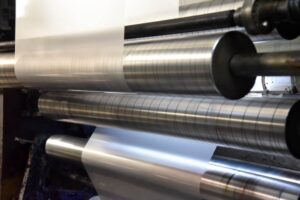Flexible Manufacturing System (FMS) refers to a production method designed to easily adapt to changes in the type and quantity of products being manufactured. FMS allows manufacturers to react quickly to fluctuating demand, reduce downtime, and increase productivity by automating and optimizing production processes. Its key features include the use of computerized control systems, automated machinery, and modular equipment setups.
Understanding Flexible Manufacturing Systems
A Flexible Manufacturing System (FMS) is a production technology that enhances manufacturing flexibility. Flexibility in this context means the ability to quickly switch between different products or production volumes without requiring extensive reconfiguration or downtime. This system is ideal for industries that handle a variety of products and need to meet unpredictable market demands.
Key Components of FMS
- Automated Machines: The backbone of any FMS is its automated machines, such as CNC (Computer Numerical Control) machines. These machines perform a wide range of tasks without human intervention, reducing errors and improving consistency in production.
- Centralized Computer Control: A computerized control system integrates all parts of the FMS. It manages the machinery, production schedules, material flow, and quality control, ensuring seamless communication and coordination throughout the process.
- Material Handling Systems: Automated material handling, such as conveyors and robotic arms, is critical to an FMS. These systems transport raw materials and finished goods between machines without human input, allowing for faster production and fewer interruptions.
- Modular Workstations: FMS workstations are modular, meaning they can be reconfigured based on the type of product being made. This flexibility allows manufacturers to handle custom orders or short production runs without needing to overhaul the entire system.
Types of Flexible Manufacturing Systems
FMS can be broadly categorized into two types:
- Dedicated FMS: Designed to handle a specific set of products. This type of system is optimized for high-volume production but with limited variation in product types. For example, an automotive plant might use a dedicated FMS for producing car engines or gearboxes.
- Random FMS: This system is designed for manufacturing a wide variety of products, often in smaller batches. It offers greater flexibility and is commonly used in industries like electronics or custom manufacturing, where product variation is high, and production runs are shorter.
Advantages of Flexible Manufacturing Systems
- Increased Productivity: FMS reduces downtime by automating tasks and enabling quick changes in production lines, allowing manufacturers to produce more in less time.
- Cost Efficiency: While the initial investment in an FMS can be high, the system helps reduce long-term operational costs by minimizing waste, labor costs, and production errors.
- Scalability: Manufacturers can easily scale their operations up or down depending on demand without needing to invest in new equipment or reconfigure their production lines.
- Customization: FMS allows manufacturers to quickly switch between product types or even customize individual orders, which is increasingly important in markets where personalized products are in high demand.
- Improved Quality Control: Because FMS is heavily automated, the system can ensure consistent quality across production runs, reducing defects and increasing customer satisfaction.
Real-World Applications of FMS
Many industries use FMS to stay competitive. For instance:
- Automotive Manufacturing: Car manufacturers use FMS to produce different models or parts on the same production line without having to stop for retooling.
- Electronics Manufacturing: Companies like Apple and Samsung rely on FMS to produce various electronic devices, quickly shifting from one model to another to meet market demand.
- Custom Manufacturing: Industries producing custom-made products, such as aerospace or defense, use FMS to handle highly specialized, low-volume orders efficiently.
Challenges of Implementing FMS
Despite its many benefits, there are challenges associated with implementing FMS. These include:
- High Initial Investment: Setting up an FMS requires significant capital expenditure due to the cost of automated machines, computer systems, and training staff.
- Complex Maintenance: The more automated a system is, the more complex its maintenance requirements. Highly specialized technicians are often needed to keep the system running smoothly.
- Technological Dependence: FMS relies heavily on software and hardware systems. Any malfunction in the control systems could disrupt production and lead to costly downtimes.
- Integration Issues: For FMS to work seamlessly, it must integrate well with existing processes, which can be challenging in older or less automated manufacturing environments.
Future of Flexible Manufacturing Systems
As industries increasingly embrace automation and Industry 4.0 technologies like AI and IoT, the future of FMS looks promising. These systems are expected to become even more adaptable and intelligent, offering manufacturers new ways to optimize production, reduce waste, and respond to market changes faster than ever before.







